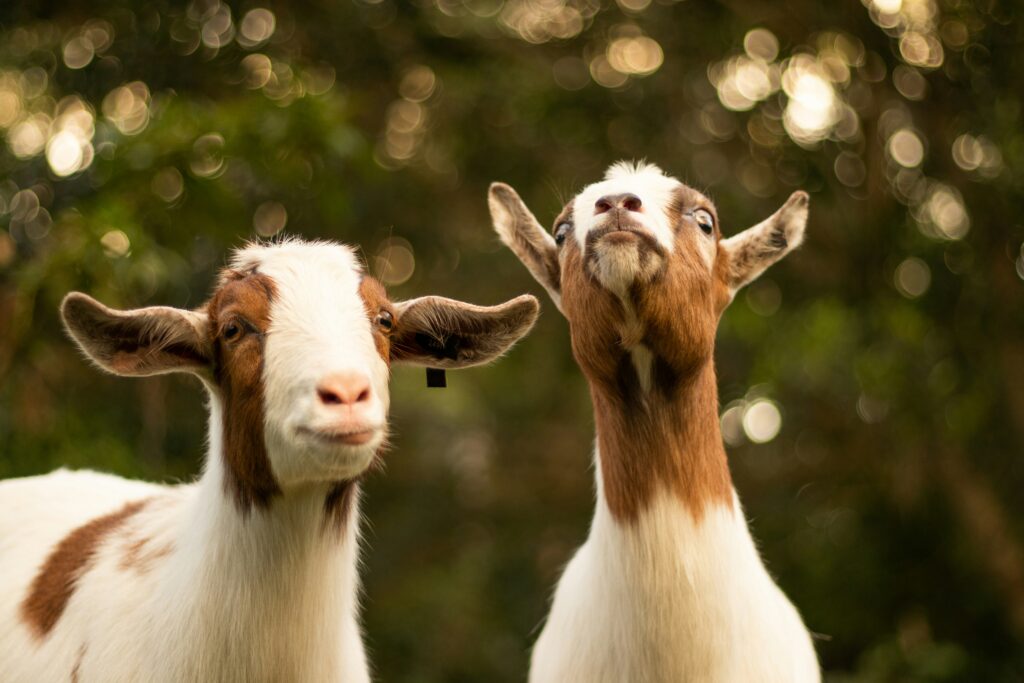Pet goats are popular pets, not only for their adorable and curious personality but also for their utility in keeping grass and weeds in check. They are fun and affectionate creatures that are easy to care for, but their dietary requirements are specific. Feeding your goat a poorly balanced diet can lead to malnutrition and other health problems. In this article, Robin Leigh Svec will provide the perfect menu for your pet goat to thrive.
Forage:
Goats are ruminant animals, which means they are designed to eat forage. They love to graze during the day, consuming different grasses, shrubs, and weeds. Besides having a highly digestible fiber that supports the growth of beneficial gut bacteria, forage is rich in proteins, minerals, and vitamins.
However, not letting your goat graze outside for unlimited periods is important, as overgrazing can lead to exposure to poisonous plants. Also, it’s essential to provide adequate clean water since water is essential for proper digestion and supports hydration.

Concentrates:
Concentrates are supplemental feeds that increase the nutrient density of the diet. They are not the primary energy source and protein but provide essential amino acids, phosphorous, and minerals. Therefore, when choosing concentrates for your goat, ensure they are labeled “for goats.”
Typically, goats need around 1-2 pounds of concentrate feed daily to satisfy their dietary requirements. Research has shown that the best concentrate feeds for goats are soybean meal, corn grain, cottonseed meal, and wheat grain. All these feeds are rich in protein and energy that support goats’ growth, reproduction, and milk production.
Vitamins and Minerals:
Your pet goat needs a balanced mineral supplement for their specific needs. In addition to the primary minerals like copper, zinc, and iron, your goat needs trace minerals in tiny quantities. Some common trace minerals in goats are selenium, iodine, cobalt, and manganese.
Also, goats need vitamins to support their metabolism. Vitamin A is crucial for vision, skin health, and immune function. Vitamin E supports a healthy reproductive system, and vitamin D is essential for bone mineralization.
Treats:
While goats enjoy treats, they should be given sparingly. Treats don’t provide adequate nutrition, but they can be used as a means of bonding with your goat. Fruits, nuts, and vegetables, including apples, carrots, and sweet potatoes, can be given in small amounts. Avoid giving your goats chocolate, meats, and dairy products since they may cause digestive problems.
Hay:
Hay is a coarse plant material that is an important source of fiber in your goat’s diet. It is typically an important part of the winter diet, especially when forage is scarce. Hay should be of good quality and not dusty or moldy. In addition to providing fiber, hay helps prevent boredom and aids in dental wear. It also supports rumen health since it contains beneficial microorganisms that help digest more complex foods.
It is important to provide a variety of feeds and forage materials, as monotonous diets can lead to reduced nutrient consumption. Also, check with your vet before changing your pet goat’s diet. With the right balance of nutrition, your goat will be healthy and happy!
Furthermore, it is important to monitor your pet goat’s weight carefully. An overweight or underweight goat can lead to serious health problems. Also, take note of any changes in your pet’s behavior, as this could indicate a dietary deficiency or an illness. Understanding your goat’s nutritional needs and providing the right diet can ensure your pet lives a long and happy life. A healthy diet is essential for goats to reach their full potential.
Final Thoughts
Feeding a pet goat is not complicated. The goal is to provide a diet that is nutrient-dense and balanced. Access to clean water, forage, concentrates, vitamins, minerals, hay, and treats can ensure your goat thrives and stays healthy. Knowing the right foods to feed and how to feed them to your pet goat can make all the difference in your pet’s health and happiness. Lastly, remember to regularly consult your veterinarian for advice and help in developing the perfect menu for your goat.
